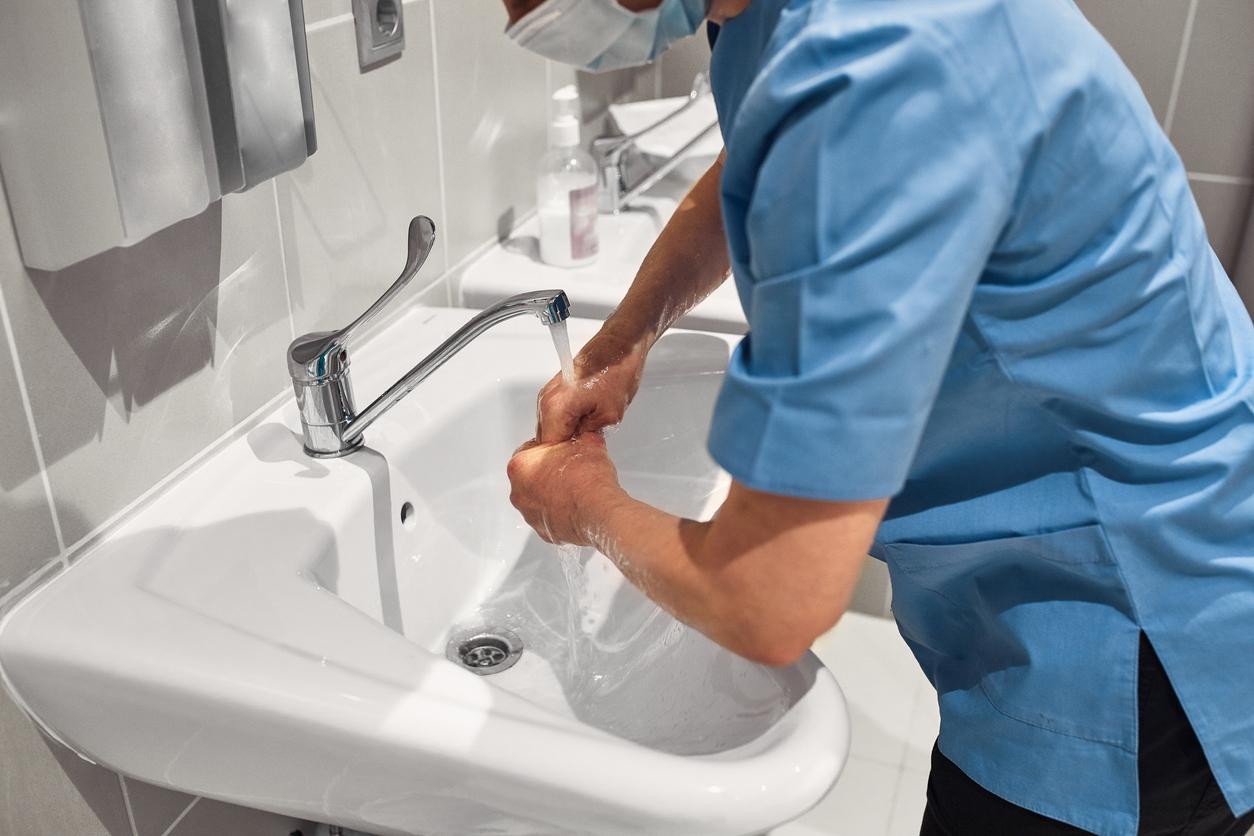The skin is covered with bacteria and microbes necessary for its balance. Scientific research is progressing to understand how they work.

- The skin microbiota is made up of more than 300 bacteria
- Imbalances of this skin flora can cause diseases like acne
- The effects of probiotic cosmetics would not be proven
Probiotics aren’t just for your gut, they can also improve the condition of your skin. Recently, cosmetic brands have invested in this market, but scientists have been working on this subject for several years.
Different skin microbiota depending on the individual
Bacteria and fungi are located inside the epidermis and on the surface of the skin : they form the cutaneous microbiota. Depending on gender, diet or lifestyle, its composition varies. In total, there are more than 300 species of skin bacteria. “Be careful, however, there are no good and bad bacteriasays Professor Michel Gilliet, head of the dermatology department of the Vaudois University Hospital Center (CHUV) in Lausanne, on the Swiss site. Planet Health. This is the complexity of the study of the microbiota: certain subspecies of these bacteria can prove harmful, and the same strain of bacteria can, depending on the circumstances, produce beneficial or deleterious effects..” There are three different environments on the skin: oily areas, dry areas and moist areas. Each of them is conducive to the development of certain bacteria.
Imbalances in the skin flora can cause pathologies, such as acne. In people who have it, there is usually a bacteria called Propionibacterium acnes on the surface of the skin. As for atopic dermatitis, or eczema, it is explained by a lack of bacterial diversity on the skin, this allows Staphylococcus aureus to colonize the epidermis.
Should you maintain your skin microbiota?
Cosmetic products based on probiotics are flourishing on the shelves of specialty stores and pharmacies. The scientific community seems more cautious: the effects of these cosmetics have not yet been proven. “Before acting, we must first really understand the different mechanisms at play in order to have a solid scientific rationale.warns Marvin Edeas, president of the French antioxidant society, on the site of Science and Future. In the future, manufacturers will undoubtedly have to imagine strategies that take individual variability into account and therefore focus on product personalization.”
In any case, research on the skin microbiota shows that excessive hygiene can be harmful to the skin, because bacteria have a protective role. In his thesis on the cutaneous flora, Emeline Amartin affirms that “Iabusive or inappropriate use of antiseptics, hygiene products, cosmetics, medicines, etc. weakens our protective skin flora and endangers the balance between bacteria and our immune system”. To take care of your skin, it is better not to attack it!
.

















